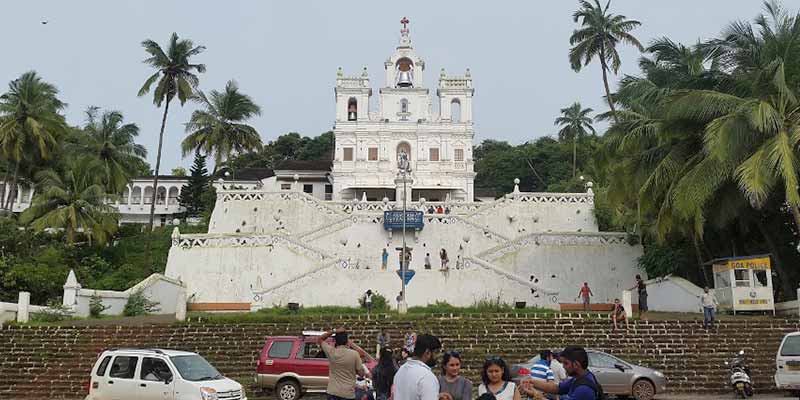- India
- Sep 16
Explainer / Goa’s Uniform Civil Code
The Supreme Court on September 13 observed that Goa is a shining example as it has a Uniform Civil Code (UCC) applicable to all, regardless of religion except while protecting certain limited rights.
The apex court batted for framing of a UCC for citizens of the country and rued that no attempts have been made to achieve this objective despite exhortations by the court.
A bench of justices Deepak Gupta and Aniruddha Bose observed this in a verdict in which it held that the Portuguese Civil Code, 1867, shall govern the rights of succession and inheritance in respect of properties of a Goan domicile situated anywhere in the country.
“It is interesting to note that whereas the founders of the Constitution in Article 44 in Part IV dealing with the Directive Principles of State Policy had hoped and expected that the state shall endeavour to secure for the citizens a Uniform Civil Code throughout the territories of India, till date no action has been taken in this regard,” the bench said.
“Though Hindu laws were codified in 1956, there has been no attempt to frame a Uniform Civil Code applicable to all citizens of the country despite exhortations of this court,” the bench said.
Formation of Goa
The territories forming part of Goa, Daman and Diu were part of the kingdom of Portugal. They were annexed by the Government of India by conquest on December 20, 1961 and became a part of India by virtue of Article 1(3)(c) of the Constitution.
After acquisition by conquest, these territories became part and parcel of India.
For making provision for administration of the said territories, the President, exercising powers vested in him under Article 123(1) of the Constitution on March 5, 1962 promulgated an ordinance called the Goa, Daman and Diu (Administration) Ordinance, 1962.
This ordinance was replaced by an Act of Indian Parliament known as the Goa, Daman and Diu (Administration) Act, 1962, which came into effect from March 5, 1962.
On the same day, the Constitution was amended by the Constitution (12th Amendment) Act, 1962 whereby Goa, Daman and Diu were added as Entry 5 in Part II of the First Schedule to the Constitution with retrospective effect from December 20, 1961.
These territories of Goa, Daman and Diu were also included in clause (d) of Article 240(1) of the Constitution. Thus, it is more than apparent that Goa, Daman and Diu became an integral part of India as a Union territory of India with effect from the date of its annexation by conquest. Goa became a full-fledged state in 1987.
Both the ordinance as well as the Act of 1962 provided that the laws applicable in Goa prior to the appointed date would continue to be in force until amended or repealed by the competent legislature or authority.
The Civil Code is in two parts - one part deals with all substantial civil laws, including laws of succession, and the other part deals with procedure.
What did the SC say about the ‘foreign’ law?
The apex court dealt with the question as to whether the Portuguese Civil Code can be said to be a foreign law and the principles of private international law are applicable.
It said that these laws would not have been applicable unless recognised by the Indian government and the Portuguese Civil Code continued to apply in Goa only because of an Act of the Parliament of India.
“Therefore, the Portuguese law which may have had foreign origin became a part of the Indian laws, and, in sum and substance, is an Indian law. It is no longer a foreign law. Goa is a territory of India; all domiciles of Goa are citizens of India; the Portuguese Civil Code is applicable only on account of the ordinance and the Act referred to above,” the bench said.
Applicable to all Goans outside Goa
The SC bench also dealt with another question as to whether the property of a Goan domicile, situated outside the territory of the state, would be governed by the Portuguese Civil Code or by the Indian Succession Act or by personal laws, as applicable in the rest of the country.
“There are no Goan citizens; there can be domiciles of Goa but all are citizens of India. As Indian citizens, under Article 19 of the Constitution, they are free to move to any part of the country, reside there and buy property subject to the local laws and limitations,” the bench noted.
It said that the Portuguese Civil Code, being a special Act applicable only to domiciles of Goa, would be applicable to Goan domiciles in respect to all the properties within and outside Goa.

